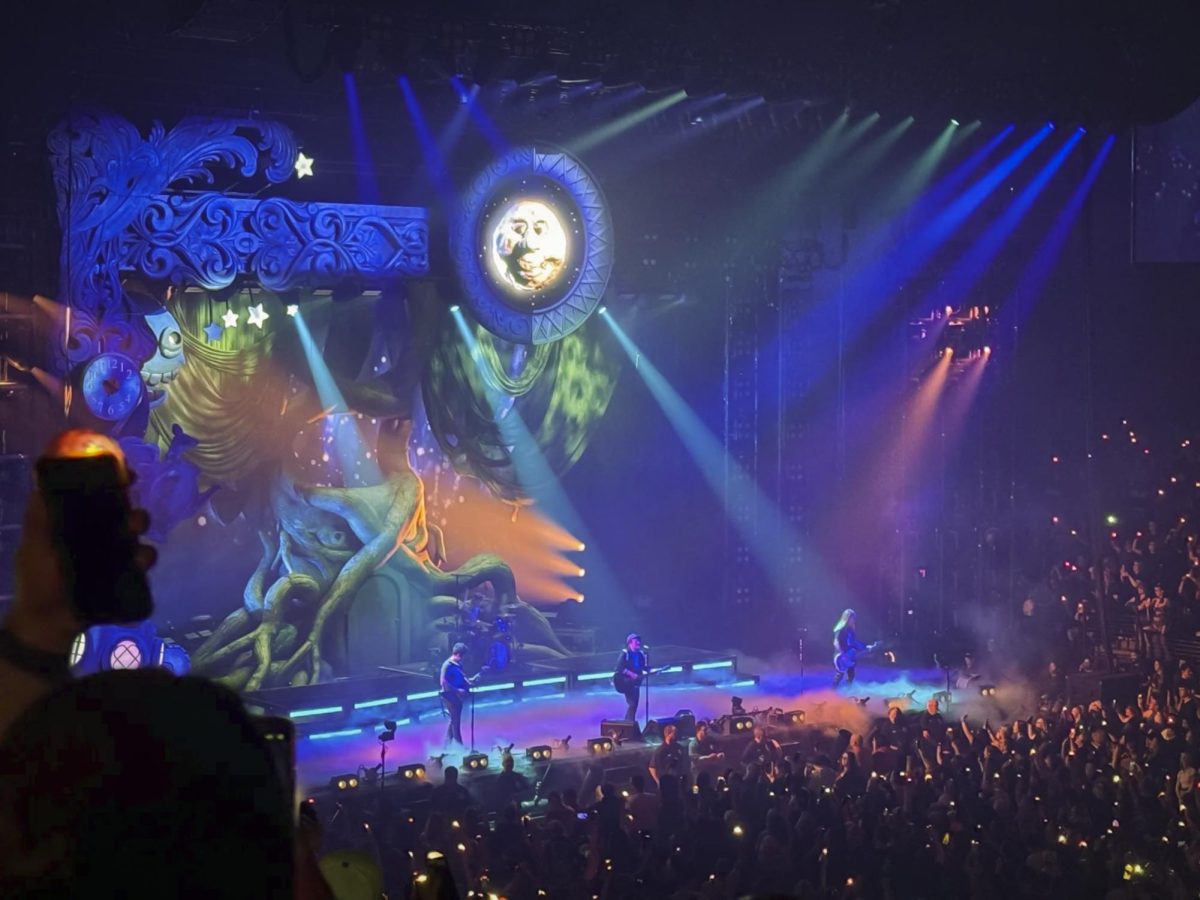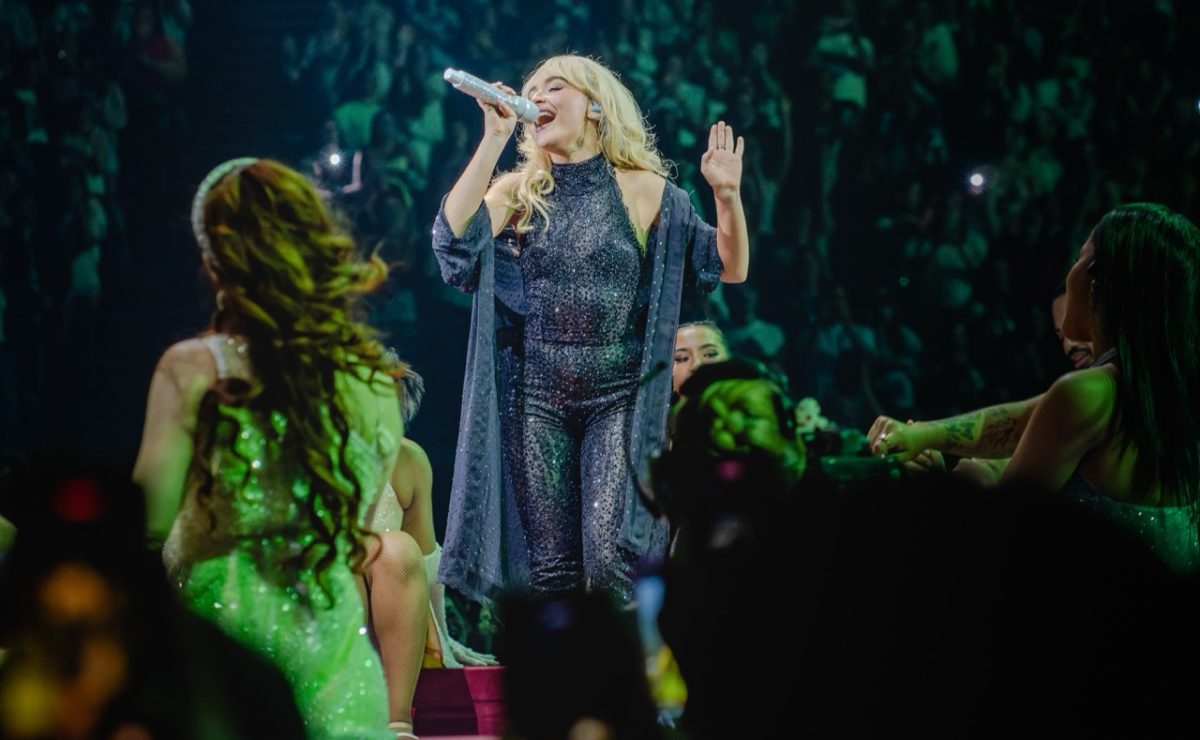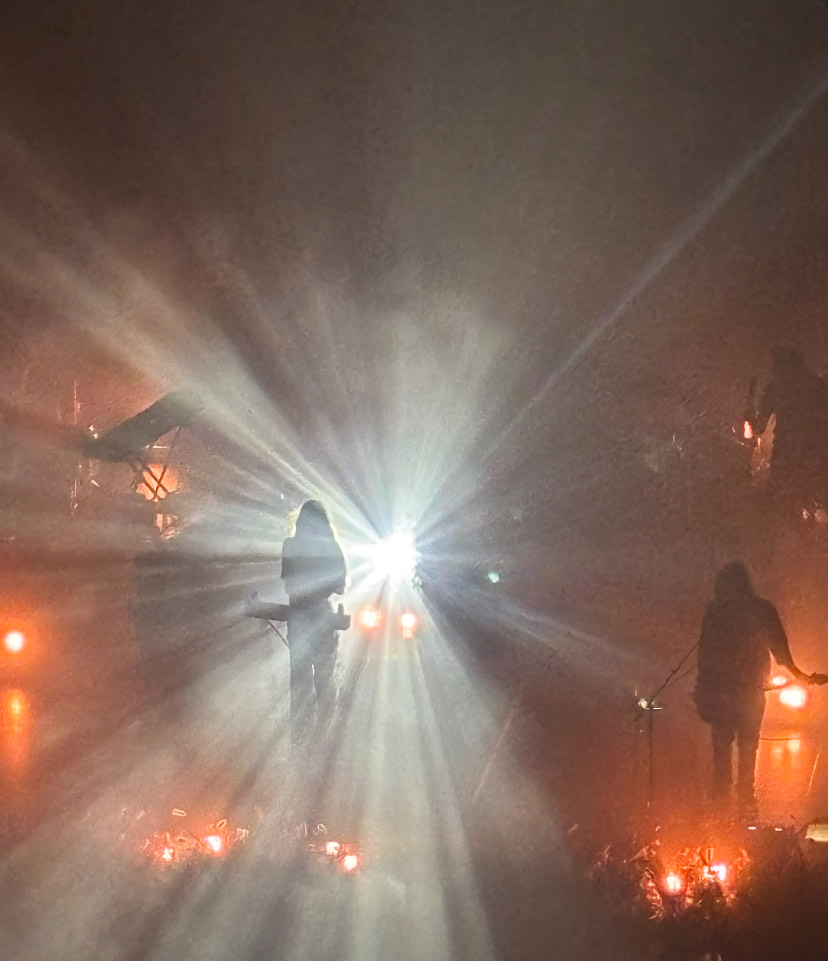Fall Out Boy’s marathon “So Much For (Tour) Dust” tour was marked by the infamous Magic 8-Ball song — for Taylor Swift fans, this may sound similar to the “Eras Tour” surprise song concept, which is typically a long-forgotten deep-cut — that delivered a truly unique experience for each city’s fans. April 6’s Fall Out Boy concert included a whopping six Magic 8-Ball songs and was also the longest concert in Fall Out Boy’s entire two-decade-long history with a setlist of 33 songs. Indeed, the closing show in downtown Minneapolis was impressive in both a historical manner and in the way it rendered within me a greater appreciation for the band — a feat I never thought possible.
My personal connection to the band is inseparable from my opinion of their concert. Though pit tickets were out of the question for me, my experience, even from the stadium seats, was electric. Much of this came from the thrill of the setlist. Once they played an unreleased demo that even I, a diehard fan, had no knowledge of, I found myself awaiting each song with bated breath. What more could they possibly do to surprise me?
Those who have never experienced rabid music fanhood first-hand may not understand the allure of the deep-cut track. These songs hide between the chart-topping singles of any given album tracklist and thrive off of fans’ desire to distinguish themselves as particularly devoted to the artist in question. “True fans,” of course, are those whose favorite song’s only surviving audio is from a tin-can quality 2004 Nokia recording of the band’s sound-check in a dive bar. The deep-cut feels personal to us; its unpopularity removes any doubt in our minds that we like it for any other reason than its inherent qualities. The same cannot be said about the chart-toppers, like “Centuries” or “Sugar, We’re Goin’ Down.”
I have no shame in admitting that I have been bitten by the deep-cut bug. I recall many nights of my senior year of high school spent with a bag of Hot Cheetos and an Instagram livestream of My Chemical Romance’s comeback tour, as I obsessed over the possibility of my personal favorite hidden gems seeing the light of day. When My Chemical Romance finally played the long-forgotten “Sister to Sleep” — the Nokia phone recording song—in Los Angeles, I felt a deep sense of connection to the band.
It felt like they understood the real fans. It felt like they were playing this specifically for us, perhaps as a tribute to us for sticking it out this long despite the previous decade of teasing a comeback tour. However parasocial this may be, it is the current reality of many of the globe’s most rabid fandoms. The same can be said about Taylor Swift and her fans’ encyclopedic knowledge of her music. In much the same way as My Chemical Romance and Fall Out Boy, this phenomenon has resulted in fanbases that would gladly devote thousands of dollars to following these artists on tour. Or, at the very least, spending hours on end for months watching every second of their tour on bootleg livestreams in hopes of seeing their favorite artist acknowledge their personal hidden gem songs.
This begs the question: who should artists play concerts for? Does social media’s parasociality, which enables fans to interact directly with their favorite artists and vice versa, require artists to pay closer attention to the demands of their fans? My Chemical Romance’s Mikey Way has been cited as the likely cause for the band’s increased use of obscure tracks in their setlists due to his activity on fan forums such as Reddit’s r/MyChemicalRomance community, however alienating these tracks may be to the casual fans. Does this make fan service any less special? Should more bands do this, especially as ticket prices continue to soar? Furthermore, how many deep cuts should be played at each venue? What if a fan spends thousands on pit tickets in hopes of seeing their favorite song played live, only to be met with one they’ve never heard of from an album they despise? In other words, is it only fair that, after all we’ve given our favorite artists, that they take the time and effort to cater to our every desire — and is this even feasible?
In reviewing the concert itself, I find myself biased by the inclusion of my personal favorite deep-cut tracks. Of course, the concert was great; the sets were vibrant and the strange costumed creatures and impressive animatronics made tracks like “Uma Thurman” feel a little less milquetoast and commercial. Patrick Stump, as always, provided an outstanding vocal performance — seriously, how does he do it? Every other emo lead vocalist has blown their vocal cords out over the years! The lighting and pyrotechnic design elevated already incredible cuts like “Headfirst Slide Into Cooperstown On a Bad Bet,” wherein the post-chorus refrain, coupled with a heavenly white lighting cue, delivered a catharsis for die-hard fans who had long dreamed of hearing the little-known fan-favorite live. “Honorable Mention,” the leading 8-Ball gimmick track for the evening, was only added to Spotify in the past two years; it’s the leading track off of the band’s purposefully-obscured “Fall Out Boy’s Evening Out With Your Girlfriend,” their true debut album. I have no shame in admitting that I cried tears of joy upon hearing the opening riff.
Which, again, brings me to the central issue at hand here: if these moments are so enjoyable for fans, why haven’t artists always catered to their most hardcore fans? Is it the relative rarity of such deep-cuts that makes them worth shedding tears over? What happens when an artist runs out of such rarities — and what makes a rarity worth playing if even the most knowledgeable fans know little about them? This was true of “Legendary 7-9,” a demo played by Fall Out Boy that had previously only existed on Patrick Stump’s now-defunct blog. I think of the opener Jimmy Eat World, whose songs — apart from “The Middle” — were met with little recognition from the audience. The energy of the arena when “The Middle” was played, as well as when Fall Out Boy’s chart-toppers played, was palpable. Still, if Fall Out Boy’s setlist was entirely composed of the songs that every person in the crowd knows so well by heart that they scream every lyric, I would be unsatisfied. There’s something empowering about being the only one in your section yelling the lyrics to your low-profile favorite. Perhaps, then, Fall Out Boy found themselves striking the perfect balance between popular classics and ridiculous deep-cuts in their historic performance at the Target Center. What the Twin Cities did to deserve such a special concert is unknown, but I, for one, am endlessly thankful.








anon • Apr 19, 2024 at 2:04 pm
NEVER mention Saylor Twift’s talentless, psychotic ass in the same sentence as FOB ever again!